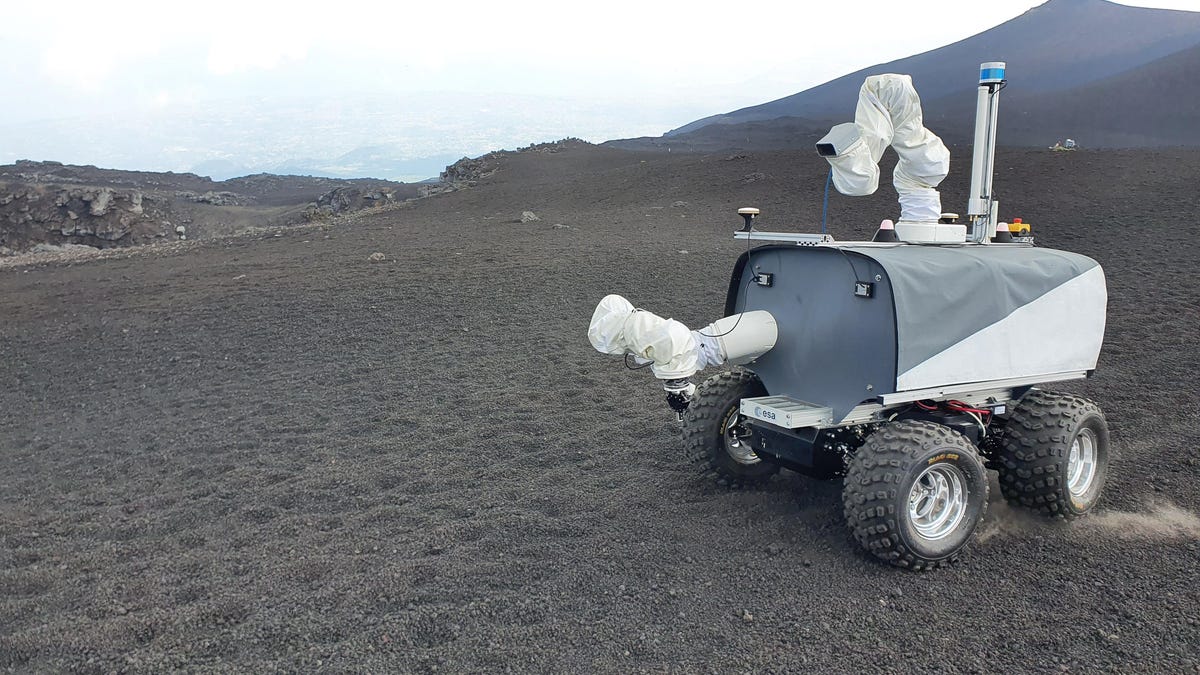ESA Tested Its New Moon Rover on Europe's Largest Active Volcano

Photo: European Space Agency
Mount Etna on the island of Sicily is Europe’s largest active volcano and a perennial crucible in professional cycling. The world’s best cyclists most recently climbed the slopes of Etna during the fourth stage of this year’s Giro d’Italia. The day’s racing concluded with a three-way fight between Lennard Kämna, Juan Pedro López and Etna’s desolate landscape. Kämna came out victorious on the day, but the winds blown across the rocky terrain left many reeling at the climb’s end. More recently, Mount Etna was used to put something quite different to the test.
Photo: Luca Bettini / AFP (Getty Images)
The European Space Agency (ESA) used Mount Etna to prepare to reach an even higher summit, the Moon. As reported by Euronews, the multinational space agency tested a new lunar rover with 1,650 square foot area at 8,500 feet in altitude. The site on Mount Etna was selected because of its harsh Moon-like conditions.
The rover was controlled remotely from a control center in Catania, Sicily’s second-largest city, located 14 miles away from the test site. Other expected mission parameters were replicated during the test such as the time delay between control input and execution as well as the communication delay between mission control and the on-site astronaut.
Haptic feedback is a unique feature to the rover that has been promoted by the ESA’s design team. Thomas Krueger, Team Lead at the ESA’s Human Robot Interaction Lab has said:
“With haptic feedback, you indeed would feel what the robot feels. So, if you move our haptic device and the robot touches an obstacle, you indeed feel the touch. And this allows the operator to do more fine-grained tasks that are not possible without haptic feedback.”
Photo: Eva Marie Uzcategui / AFP (Getty Images)
The European Space Agency plans to deploy the rover in collaboration with NASA’s Artemis program. NASA’s return to the Moon is slated to feature significant European cooperation, including ESA-provided modules for a future outpost on the Moon in exchange for placing European astronauts on the Lunar Gateway. The Lunar Gateway, a space station in orbit around the moon that will be used as a staging point for missions to the lunar surface and later Mars.



